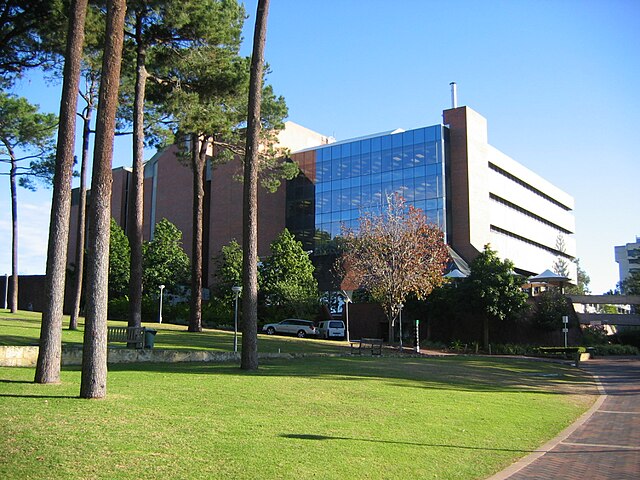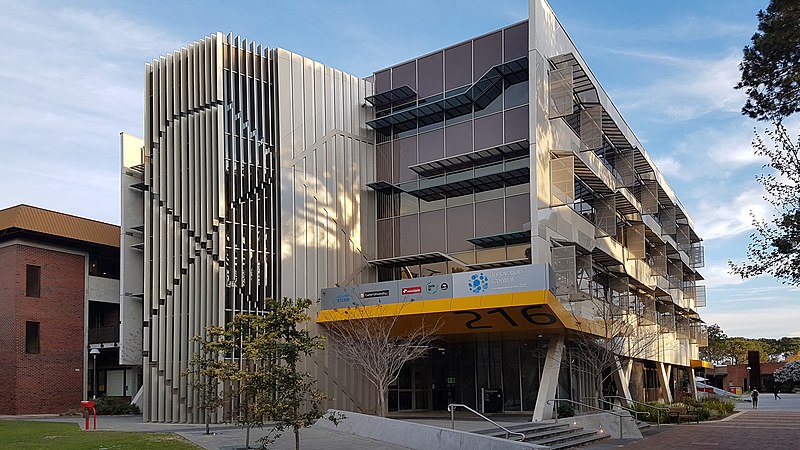
As Thammasat University students grow accustomed to online learning and distance education, some may wish to explore overseas opportunities after they have done their required coursework. Taking an extra class may be informative and help complement main areas of study, giving students new ideas and perspectives and help them to practice their English language usage.
One opportunity to consider may be free massive open online courses (MOOCs) at Curtin University, Western Australia.
Curtin University is an Australian public research university based in Bentley, Perth, Western Australia. It is the largest university in Western Australia, with 56,662 students enrolled in 2017. It has opened overseas campuses in Dubai, Malaysia, Singapore, and Mauritius. As Western Australia has become an important exporter of minerals, petroleum and natural gas, Curtin University receives funding from major Chinese companies connected to the state.
The Facebook Page of the Australian Studies Centre, Thailand has featured Curtin University, noting that some scholarships are available for international students.
The Australian Studies Centre is under the aegis of the Thammasat Institute of Area Studies (TIARA).
As its website indicates, TIARA is home to five area studies centers:
Thai APEC Study Center, Australian Studies Centre, India Studies Centre, Russian and CIS Studies Centre, and ASEAN Studies Centre. Our objectives are to conduct and encourage research area studies; provide consultation; organize seminar, forum, lecture domestically and internationally; promote publications and dissemination of research finds, books, articles, and other forms of media, and build academic and research network across the globe.
The director of TIARA is Associate Professor Suphat Suphachalasai, PhD. In a message posted on the TIARA website, Ajarn Suphat observes:
Thammasat Institute of Area Studies (TIARA) has a long journey of its own. Covering five centers and on master’s degree program under its wing, the growth in scope shows that the university strongly believes in our work and responsibility. This trust in TIARA has gone all the way since the humble beginnings of TIARA, which started with a single institution, the Thai APEC Study Centre, back in 1993. Along the way, TIARA has not only developed experience, but also extended in term of networks, collaborations, academic exchanges, and more. With a strong reputation, TIARA extend such qualities to the rest of its centers.
Managing five centers simultaneously posed its own challenge. With broader scope comes with great responsibility. TIARA now is as busy as ever, with each center holding its own research events and academic exchanges under the umbrella of TIARA. The core of our business remains the same, focusing on academics and research, maintaining databases, expanding and preserving international academic collaborations and continuously communicating new knowledge for public consumption. More centers at hand provide more resources and room for academic activities within the context of Area Studies, but not limited to national or regional studies. Thus, the Master’s Degree Program takes advantage of the expansion by transforming itself into a multidisciplinary and multifaceted Area Studies master’s degree program, the only one in Thailand.
Having said that, I believe TIARA has an exciting journey ahead. Looking back at how TIARA has grown for the past decades and what lies ahead, surely TIARA will continue to do what it does best; to deliver the best academic outcome possible to benefit the public. To that end, TIARA remains committed to the same service ideals.

Educational opportunities
Curtin University’s range of MOOCs include Cybersecurity and Privacy in the Internet of Things (IoT):
Learn about the security and privacy implications of the Internet of Things (IoT) and how to design a secure system.
About this course
As the Internet of Things (IoT) continues to grow so will the number of privacy and security concerns and issues. As a professional working in the field, it is essential to understand the potential security risks and how to best mitigate them.
In this course, you will learn about security and privacy issues in IoT environments. We’ll explore the organizational risks posed by IoT networks, and the principles of IoT device vulnerabilities. We’ll also look at software and hardware IoT Applications for industry.
With billions of devices tracking our every move, privacy is a critical issue. We will explore and discuss the social and commercial implications the IoT brings to society.
What you’ll learn
- Identify and analyse IoT security and privacy risks
- Concept design for secure hardware and software
- Analyse the social and privacy impacts of the IoT.
The course instructors will be Professor Iain Murray AM; Eleanor Sandry, Lecturer in Internet Studies; and Nazanin Mohammadi, Network Specialist, all of Curtin University.
Another learning opportunity is The Business of Mining:
Learn the theory behind running a mine and see if you’ve got what it takes to explore, plan, operate and close a mining operation.
About this course
Mining underpins much of our technology and industries as well as modern society in general. A successful mine should be run efficiently and responsibly from exploration through to closure, with sound economic management every step of the way. In this course you’ll examine the business aspect of mining, focusing on the life cycle of a gold mine and discovering the technical and economic issues that affect the exploration, planning, operation and closure of a large-scale mining project.
The Business of Mining has recently won the Best in Class in the University category of the Interactive Media Awards in the USA. The judging criteria included design, content, feature functionality, usability, standards compliance and cross-browser compatibility.
What you’ll learn
By the end of this course you will be able to:
- Discover how new mineral deposits are found and examine the economic factors that govern their development.
- Plan the complete life cycle of a mine, from initial infrastructure requirements through to operation, closure and rehabilitation.
- Experience the ‘living plan’ of a mine and see how extraction and processing of minerals is constantly adjusted to suit market conditions.
- Investigate how economics and market forces influence the decision to close a mine.
The class instructors will be Associate Professor Felix Chan of the School of Economics and Finance, Curtin University; Dr. Steve Hall, Executive Director of Mining Education Australia, Curtin University; Associate Professor Bryan Maybee, WA School of Mines: Minerals, Energy and Chemical Engineering, Curtin University and Dr. Dan Packey, Director, Master of Science Mineral and Energy Economics, Curtin University.
As TU students know, the TU Library collection contains many books about different aspects of mining.

(All images courtesy of Wikimedia Commons)
